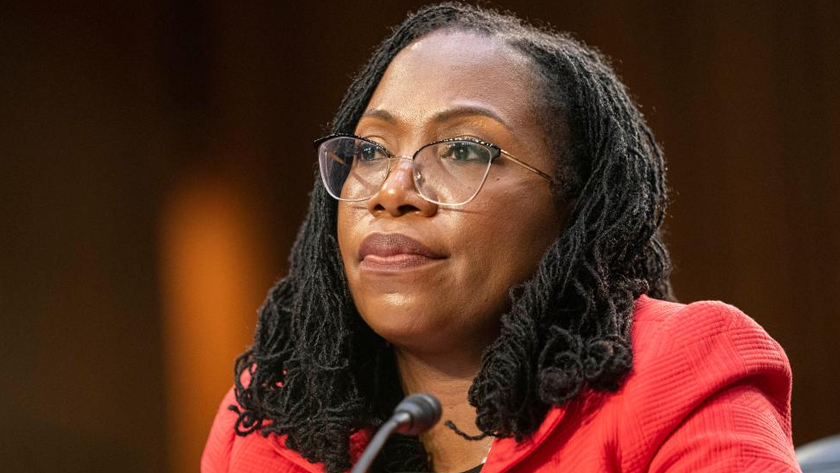Iran Press/ America: Chief Justice John Roberts administered the constitutional oath for Jackson while Associate Justice Stephen Breyer, whom she clerked for, administered the judicial oath, in a ceremony before a small gathering of her family at the Supreme Court on Capitol Hill.
Jackson, in a statement, said that she will administer justice "without fear or favor."
It came a day after 83-year-old Breyer, who had served in the Supreme Court since 1994 and announced his retirement from the court early this year, said he would step down from the Supreme Court bench Thursday.
According to Xinhua, U.S. President Joe Biden nominated Jackson, 51, to succeed Breyer in late February, and Jackson was confirmed by the Senate in a 53-47 vote in April.

The Supreme Court is the final appellate court of the U.S. judicial system, with the power to review and overturn lower court decisions, and is also generally the final interpreter of federal law, including the country's constitution.
Since the Supreme Court was established in the United States in 1789, 116 justices have been confirmed to the bench. Of them, 108 are white men and only six are women, including Jackson. The justices have life tenure and can serve until they die, resign, retire, or are impeached and removed from office.
Born in Washington, D.C. but raised in Miami, Florida, Jackson received her law degree from Harvard University and graduated cum laude in 1996. Earlier in her legal career, she worked as an assistant federal public defender in D.C. and served as vice-chair of the U.S. Sentencing Commission for four years.
Jackson served more than eight years as a judge on the U.S. District Court for the District of Columbia before being elevated to the U.S. Court of Appeals for the D.C. Circuit in June 2021.
224
Read More:
Black lives never matter in Land of Dreams: Official
Killings of black women in US receive little attention: The Guardian
Maryam Abolbagha

